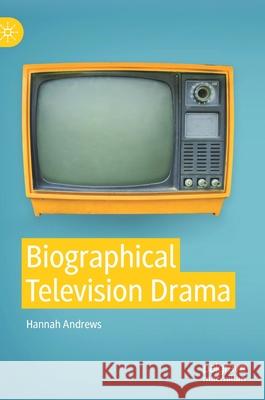Biographical Television Drama » książka
topmenu
Biographical Television Drama
ISBN-13: 9783030646776 / Angielski / Twarda / 2021 / 231 str.
Biographical Television Drama
ISBN-13: 9783030646776 / Angielski / Twarda / 2021 / 231 str.
cena 442,79
(netto: 421,70 VAT: 5%)
Najniższa cena z 30 dni: 424,07
(netto: 421,70 VAT: 5%)
Najniższa cena z 30 dni: 424,07
Termin realizacji zamówienia:
ok. 16-18 dni roboczych.
ok. 16-18 dni roboczych.
Darmowa dostawa!
Kategorie:
Kategorie BISAC:
Wydawca:
Palgrave MacMillan
Język:
Angielski
ISBN-13:
9783030646776
Rok wydania:
2021
Wydanie:
2021
Ilość stron:
231
Waga:
0.44 kg
Wymiary:
21.01 x 14.81 x 1.42
Oprawa:
Twarda
Wolumenów:
01
Dodatkowe informacje:
Wydanie ilustrowane











